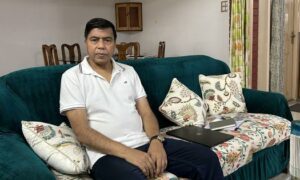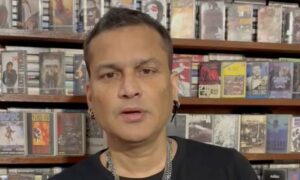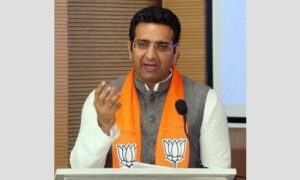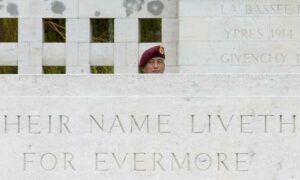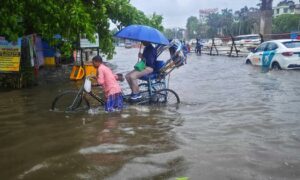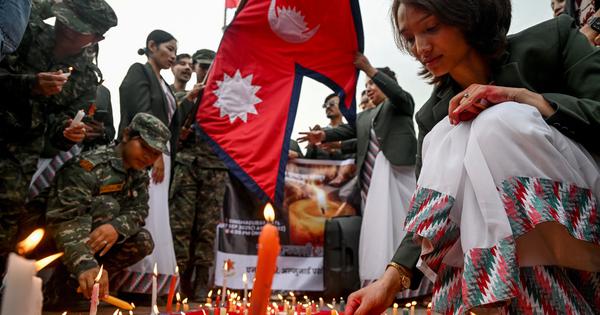
The protests in Nepal earlier in September that led to the government being ousted bear an eerie resemblance to the events in Bangladesh last year and in Sri Lanka in 2022.
The root cause of all three protests was economic distress. They were led by people’s movements and seemed spontaneous.
In Bangladesh, it was the perceived unfairness in job quotas that lit the spark, in Sri Lanka rising inflation led to the revolt, while in Nepal the immediate trigger was the ban on social media sites. But the root cause was economic stagnation that frustrated the aspirations of youth for quality education and stable jobs.
However, rather than heading for the kind of choppiness that Bangladesh is facing, it seems that Nepal will follow the relative calm of Sri Lanka.
Perhaps that has something to do with the manner in which the Army in these three nations acted in the days after the uprisings. The army played a role in each of the countries but did not fire on the protestors.
In August 2024, the Bangladeshi army helped deposed Prime Minister Sheikh Hasina flee the country, but did not protect public property from the wrath of protesters. The Sri Lankan army, on the other hand, ensured that the damage was contained.
Though the Nepal Army drew flak for its inaction while vandalism and arson was underway, its role in the days after the government was toppled is similar to how the Sri Lankan army behaved than how the Bangladeshi army did.
The Nepal Army helped KP Sharma Oli flee in a helicopter after he resigned as prime minister (and was appointed caretaker prime minister by the president) but confined him to its barracks. However, the army ran into controversy after it took charge of the security. It has not been able to satisfactorily answer why it did not protect even the president’s office building when it became the target of vandalism and arson. According to Nepal’s constitution, the president is Nepal Army’s commander-in-chief.
Nepal’s army has also not been able to adequately explain why the portrait of the unified country’s first king Prithvi Narayan Shah was displayed in the background when Army Chief General Ashok Raj Sigdel addressed the nation on television during the turmoil.
However, like the Sri Lankan army, the Nepal Army has played a commendable role in the formation of the interim government. Unlike the Bangladeshi army, it is not trying to call the shots. Rather, like the Sri Lankan army, it is seen to be taking orders from the civilian dispensation.
While the Bangladesh Army has been involved in 29 coups, the Nepal Army has traditionally taken orders from the political dispensation.
Though negotiations in Nepal to form the interim government were initially held in the army headquarters, the Nepal Army made no fuss when calls were made to shift negotiations to the president’s office.
The decisions that followed in Nepal also have more similarities with events in Sri Lanka than Bangladesh.
In Bangladesh, an interim government was formed, but the parliament was dissolved. Elections have been announced for next year, but Sheikh Hasina’s party, the Awami League, has been banned from participating.
In Sri Lanka, parliament remained functional and a minority government was formed under Ranil Wickremesinghe. The country successfully held elections in September, with leftist Aruna Kumara Dissanayake taking over as the 10th president.
In Bangladesh, democracy is in peril, but in Sri Lanka it thrives.
In Nepal too, President Ramchandra Paudel ensured that the parliament was not dissolved – only the House of Representatives (the lower house) was dissolved while the National Assembly (the upper house) is functional.
As the protector of the constitution, Paudel appointed former chief justice Sushila Karki the interim prime minister on the recommendation of caretaker prime minister KP Sharma Oli. Karki then dissolved the House of Representatives and called elections for March 5. Moreover, the Karki-led dispensation has urged all parties to take part in the elections.
The similarities with Sri Lanka do not end here.
While deposed Bangladesh Prime Minister Hasina continues to live in exile in India, Oli is back from army barracks much like how Gotabaya Rajapaksa, the deposed Lankan president, returned to the country.
For now, it seems likely that Nepal will hold elections as planned – and with the participation of all the parties.
Anuj Arora is a journalist based in Kathmandu.
📰 Crime Today News is proudly sponsored by DRYFRUIT & CO – A Brand by eFabby Global LLC
Design & Developed by Yes Mom Hosting

